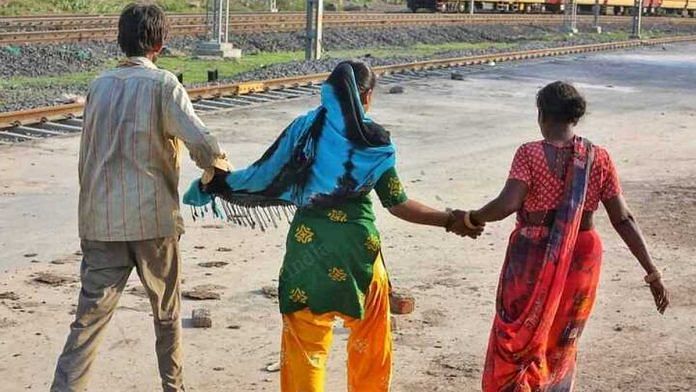Ahmedabad/Aravalli/Sabarkantha: Thirteen-year-old Sheetal Salaat* put on a pair of silver earrings with the help of her mother. They were going to meet Sheetal’s soon-to-be in-laws. Arranging this match had taken great effort. The boy has a good house with a bathroom, where Sheetal’s family only has a kutcha, doorless one. But Sheetal has a big secret that could unravel everything.
“What if they come to know and cancel the wedding? We are so worried. She has already bled that night,” said Sheetal’s mother.
“That night” was a month ago, when the 13-year-old was allegedly kidnapped from her home in Ahmedabad district and raped by Ashok Patel, a man that the family had known for years.
His primary motive for kidnapping Sheetal, however, was business, police sources claimed. He allegedly wanted to sell her in the underground bride market.
Patel and his gang operated through first identifying vulnerable families, earning their trust, and then kidnapping and selling daughters like Sheetal for marriage to men much older than them either in Gujarat or outside the state, police officers privy to the case said.
“They start by identifying potential victims and manipulating the families and getting to know them. It’s easier to do so with families that are marginalised. They also think that police will delay action,” a senior police officer explained.
Patel failed to sell Sheetal because her parents filed a complaint and the police came knocking at the farmhouse where he had locked her up, with the help of his wife and son.
She had already been beaten, sexually assaulted multiple times, and starved as a measure to ensure her compliance, she said.
But though she has been ‘rescued’, Sheetal’s childhood and education are effectively over. She will still be a child bride, to be wed well before the legal age of 18. The only difference is that her parents rather than a gang have chosen the groom.
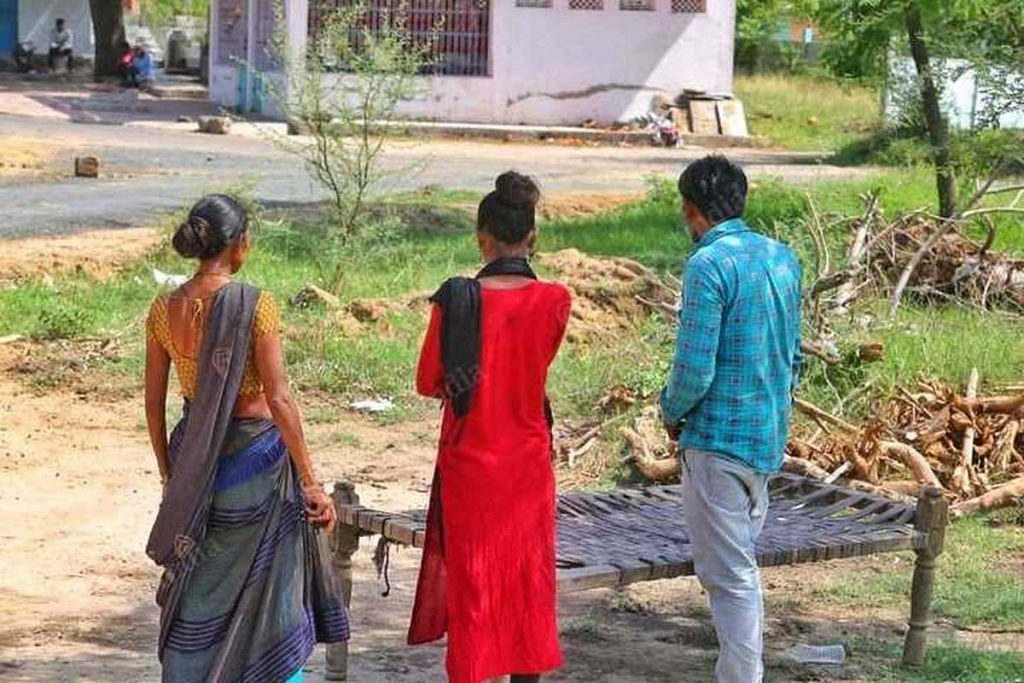
Sheetal seems to have accepted this. When asked if she wants to get married now, her eyes shone bright. “They have a good house,” she said.
Sheetal’s story highlights the complexity underlying many cases of child marriage in Gujarat. The details differ but the end results are often similar.
Some are trafficked and sold into marriage or slavery. Some are sold off by their parents under the guise of “reverse dowry”. Some are forced into marriage as a means to escape poverty and improve their socio-economic status. And for some, like Sheetal, it is a combination of all these factors.
Experts say that behind the stories of trafficking and child marriage is a bleak demographic story.
Gujarat’s sex ratio at birth is the third lowest in the country at 909 girls per 1,000 boys, according to a central government report titled ‘Vital statistics of India based on the Civil Registration System 2020’, released last month.
“Despite the Narendra Modi government’s Beti Bachao, Beti Padhao initiative and claims, Gujarat’s skewed sex ratio has always been one of the predominant reasons behind child marriages and trafficking in the state,” said Ghanshyam Shah, retired Jawaharlal Nehru University (JNU) professor and former director of the Centre for Social Studies in Surat. “Socio-economic factors also play a huge role.”
Only fragments of such cases make it into newspaper articles, typically when a case is registered under the Protection of Children from Sexual Offences (POCSO) Act or when child marriage and trafficking data are discussed in Parliament or state assemblies. As a result, the majority of stories remain unheard.
Also Read: Haryana’s desperate bachelors bought wives. They turned out to be ‘loot-and-scoot’ brides
Sheetal’s story
Demand for brides is high and young women are in short supply in Gujarat and even neighbouring Rajasthan. Ashok Patel allegedly made it his business to capitalise on this gap.
Police sources said he had befriended Sheetal’s cousin some years ago in prison, where he was serving time in another case for allegedly sexually assaulting a minor and kidnapping her with intent to compel her for marriage — an offence that comes under Section 366 of the Indian Penal Code (IPC).
The police officer who was quoted earlier said that Patel came out of prison after 3.5 years and immediately started looking for new targets. He eventually zeroed in on Sheetal’s family.
“He started coming over to their house and even stayed back for dinner. He knew Sheetal’s parents were looking for grooms for her,” the officer added.
Sheetal, in fact, was engaged in April, about a month before she was abducted.
That night, Patel contacted a marriage broker called Cheher Singh and told him about the “convenient target” he had picked, according to police sources.
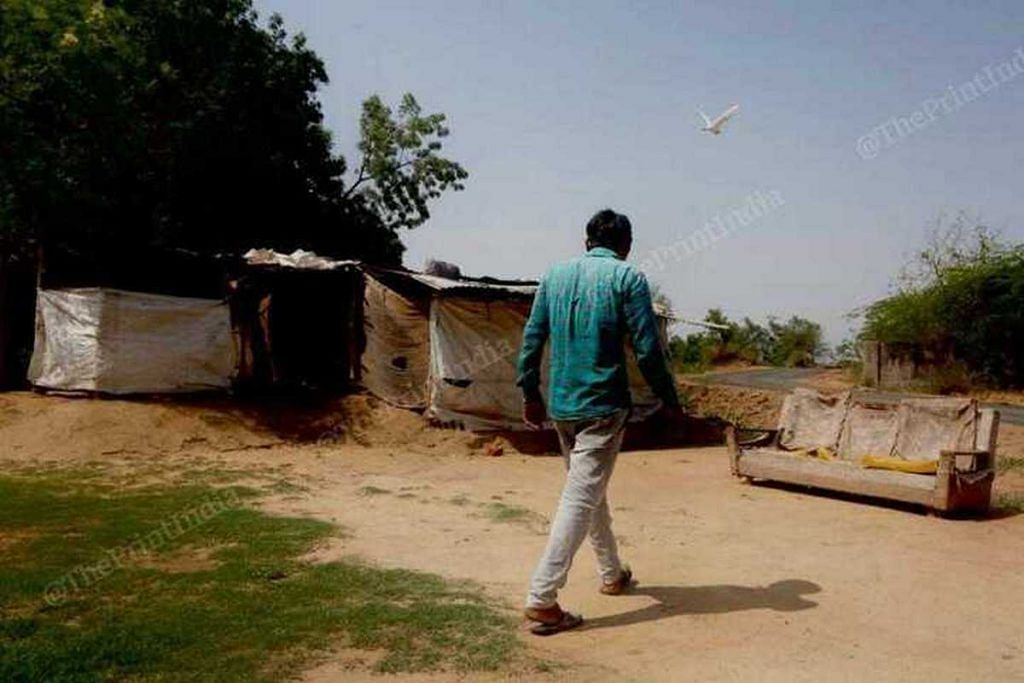
“She comes from a poor family. They won’t do anything. If they approach the police, they too won’t act on it. They’ll take it that she has eloped,” Ashok is said to have told Cheher Singh, who had allegedly been tasked with finding a suitable buyer from Gujarat or Rajasthan.
However, a deal never materialised. The police recovered Sheetal within 48 hours on the basis of an FIR lodged by her father. The police arrested Patel and Singh and also nabbed several others for their role in the conspiracy. These included Patel’s wife Renuka and minor son and two middlemen.
Additionally, four cases of cheating have been registered against Patel and his wife for running a “lootere dulhan” racket, wherein they deployed hired ‘brides’ to marry and defraud grooms who bought them.
Police sources said that gangs like Patel’s traffic minors not just across Gujarat but also in nearby states such as Rajasthan and Maharashtra. In Gujarat, sources added, these trafficking gangs operate mostly on the borders and in the northern region.
“We really want the accused to be punished but people have told us that it will take years,” said Sheetal’s father, a daily wage labourer. “Because of needing to shuttle between court and the police station, I haven’t been able to work.”
Now, he and his wife are hoping that their 13-year-old can be married to the groom of their choosing without a hitch.
Reverse dowry, ‘escape’ from poverty
Child bride cases take different forms in Gujarat.
In some instances, parents themselves sell their daughters for marriage. For instance, in 2019, a father in Ahmedabad reportedly ‘sold’ his 10-year-old daughter for Rs 50,000 to an agent who had arranged a groom for her. The incident came to light and authorities got involved after a video of the wedding went viral.
Then there are instances where parents use traditional customs as a fig leaf for selling their daughters.
“They call it reverse dowry here and take money for weddings,” said Amit Vasava, superintendent of police (SP), Ahmedabad (Rural).
The reasons for the practice range from financial gain to a desire for social mobility.
“Due to their poor financial situation, parents often marry off their daughters to people from upper classes and castes. But they won’t accept it on record that they have taken money,” said a Childline officer in Gujarat on condition of anonymity.
“We have received information in the past and also intervened but until local authorities strengthen their action against the perpetrators, nothing will change on the ground,” he added.
In some cases, even child brides may come to see their forced marriage as preferable to the harsh poverty back home.
Take, for example, the case of 17-year-old Khushi*, another alleged victim of Ashok Patel and his gang.
Khushi’s story
The Gujarat Police learned about Khushi while interrogating Patel in connection with Sheetal’s case, and then managed to trace her. She had been missing for 11 months.
Police sources said Khushi had endured multiple instances of sexual assault involving at least four men, including Ashok Patel and his elder son. Ashok allegedly went to the extent of arranging for another man to rape her in order to “break her spirit” before selling her.
“He managed to get a fake Class 10 pass certificate with a different date of birth and sold her off to a man for Rs 1 lakh,” SP Vasava told ThePrint.
Back at her one-room kutcha house, situated behind railway tracks, Khushi was trying to play music on her old DJ set, smiling slightly as she held the mic.
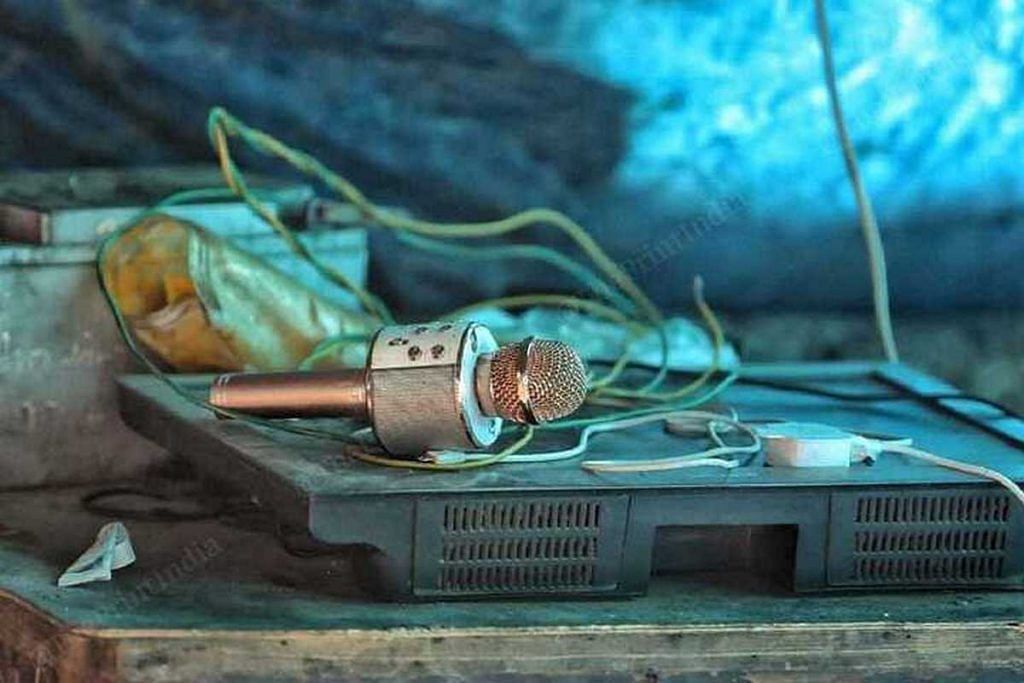
Her parents, both daily wage labourers, are happy their daughter is back. They vow never to leave her alone.
But they are upset that no action has been taken against Khushi’s ‘husband’.
According to the local police at Ahmedabad’s Shahibaug police station, where the initial missing person’s FIR was filed, the man whom Khushi was married to is not considered an accused in the case as he claims to be unaware of her minor status. Khushi’s parents disagree.
“How could he not figure out that she is a minor? Is it that easy to fool people? He should also be charged under POCSO. Some local police officers asked us to settle with the man but we refused to send her back. They even suggested that we can take money from that man,” Khushi’s father alleged.
However, a second senior Gujarat Police officer told ThePrint that Khushi had initially said that she wanted to stay with her husband but her parents insisted on taking her back.
Khushi has said that her ‘husband’, a farmer, hit her with pipes and made her do all the household chores. But when asked if she liked living there, she quietly said: “The house was good and there was always food.”
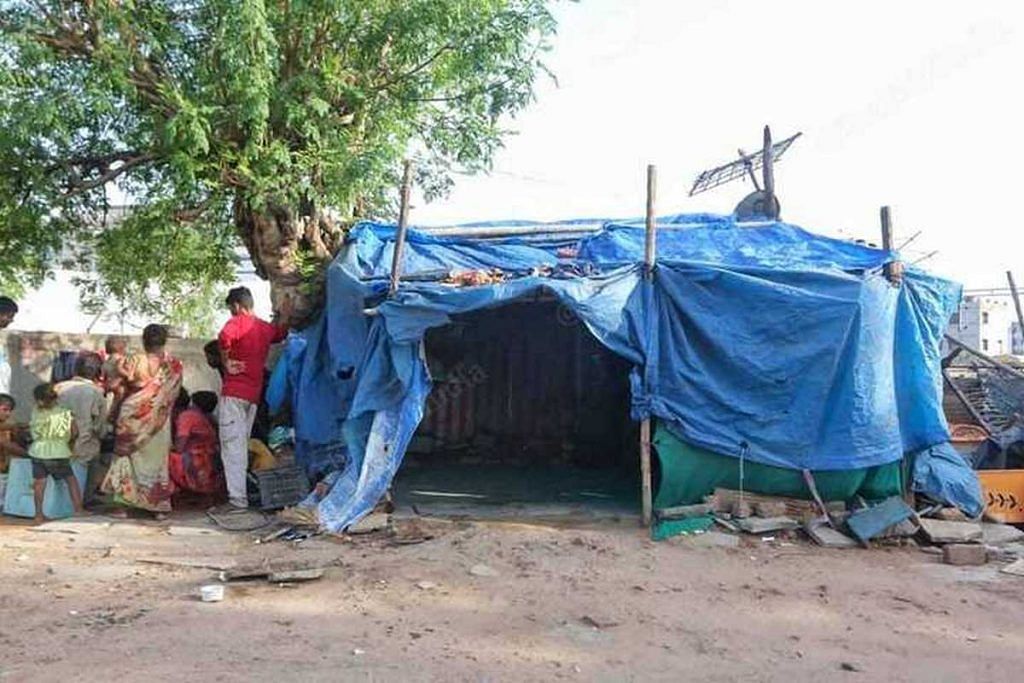
Conflicting data, under-the-radar problem
Official data presents a somewhat contradictory picture of child marriage in Gujarat.
About 22 per cent of women aged 20-24 in Gujarat were married before the age of 18, according to state report of the National Family Health Survey (NFHS)-5, conducted in 2019-2021.
In addition, the latest available data from the National Crime Records Bureau (NCRB) shows only 12 cases of child marriage were registered in the state in 2021. Moreover, within the past five years, only 61 cases were reported under the Prohibition of Child Marriage Act (PCMA).
But, in contrast, there were 483 reported cases of minor girls being kidnapped for forced marriages in Gujarat in 2021. The state, in fact, ranks fifth in India for such cases, registered under Section 366 of the IPC, according to the latest NCRB report.
Prof Ghanshyam Shah said the root of the problem lies in the state’s skewed sex ratio and concomitant issues.
Gujarat’s sex ratio at birth is 909 girls per 1,000 boys, according to 2020 figures from the central government. The latest NFHS data says the state’s overall sex ratio is 965:1,000. For the population under the age of seven, the ratio stands at 937 girls per 1,000 boys.
“Despite laws and crackdowns, numerous hospitals and doctors persist in conducting gender tests and performing abortions (foeticides),” claimed Shah.
The NCRB data shows 121 cases of female foeticide were reported across India in 2021. Gujarat and Maharashtra topped the list with 23 cases each, followed by Chhattisgarh (21) and Rajasthan (13). Gujarat, Maharashtra, and Chhattisgarh also reported the maximum number of such cases in 2020.
According to Shah, socio-economic factors exacerbate the issue.
“Child brides from marginalised communities — the so-called lower castes and poor families — are often targeted by traffickers because of their vulnerable position in society. Moreover, the perception of the female child as a burden also makes parents sell off their daughters,” he said.
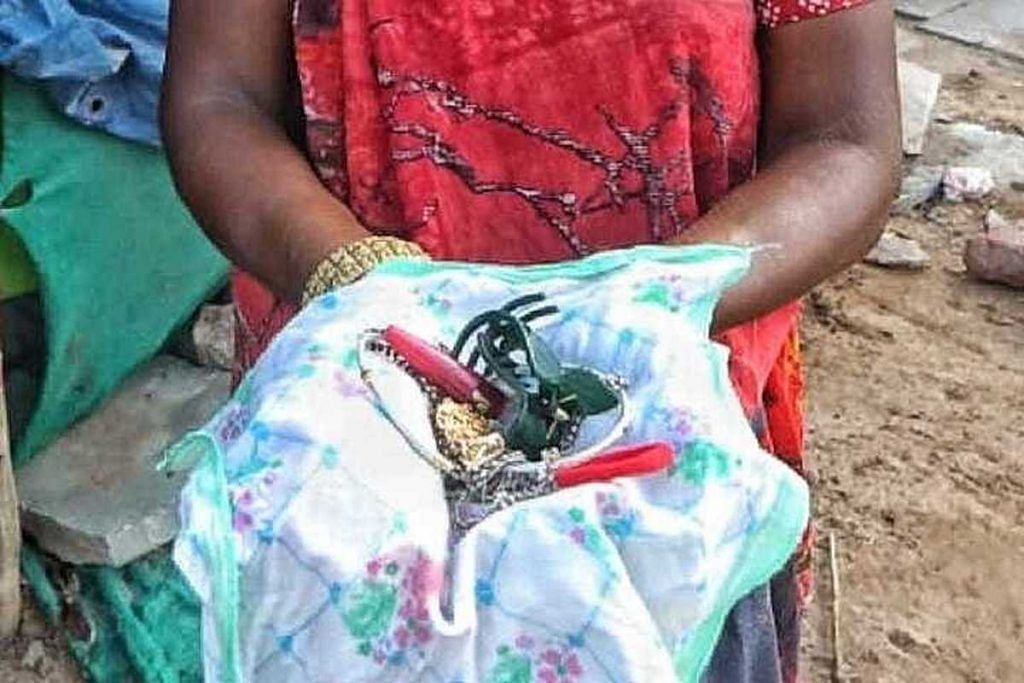
Shah added that some communities also traditionally believe in child marriages and have continued with the practice, undeterred by the law.
Senior Gujarat Police officers also told ThePrint that in numerous cases of child marriage, legal action is not initiated due to the consent of the families involved. This, they said, is the reason why local police also refrain from registering such cases.
“When it’s a clear-cut case of trafficking and forced marriage, and a gang is involved, it is comparatively easier for law enforcement to take action. But when families themselves consent to marrying off their daughters and no one reports it, tracing and tracking such cases across the state becomes a challenging task,” said a third senior Gujarat police officer.
“To follow legal processes, the police need witnesses and statements. Communities practising child marriages and parents accepting money for marrying off their daughters don’t budge,” he explained.
Tackling the issue requires multiple interventions, according to this officer.
“Police personnel need to be more sensitised to handle these matters. Stronger footwork and taking stricter action is necessary to prevent child marriage,” he said.
‘I won’t let this happen to my daughter’
When Sonal Salaat was married off at the age of 15, her parents were more than happy, she says.
The ‘curse’ of having six daughters had caused Mohit Bhai, a daily wage labourer, and his wife Pani Behen to age faster than their peers, they were convinced. So, when they got a marriage proposal from Rohit Salaat’s family, they agreed at once.
Rohit came from a financially stable background, worked as a mechanic in Ahmedabad, and had a well-built house.
Sonal’s opinion or desires were not considered, and she was married off without completing Class 9. Nine years later, at the age of 25, Sonal wakes up in the middle of the night, overcome with sorrow.
Memories of the six-year-old son she had to leave behind haunt her, making it difficult to sleep.
As she feeds her 10-month-old baby, Purvi, Sonal gently touches a scar on the left side of her chest, a reminder of her horrifying experiences.
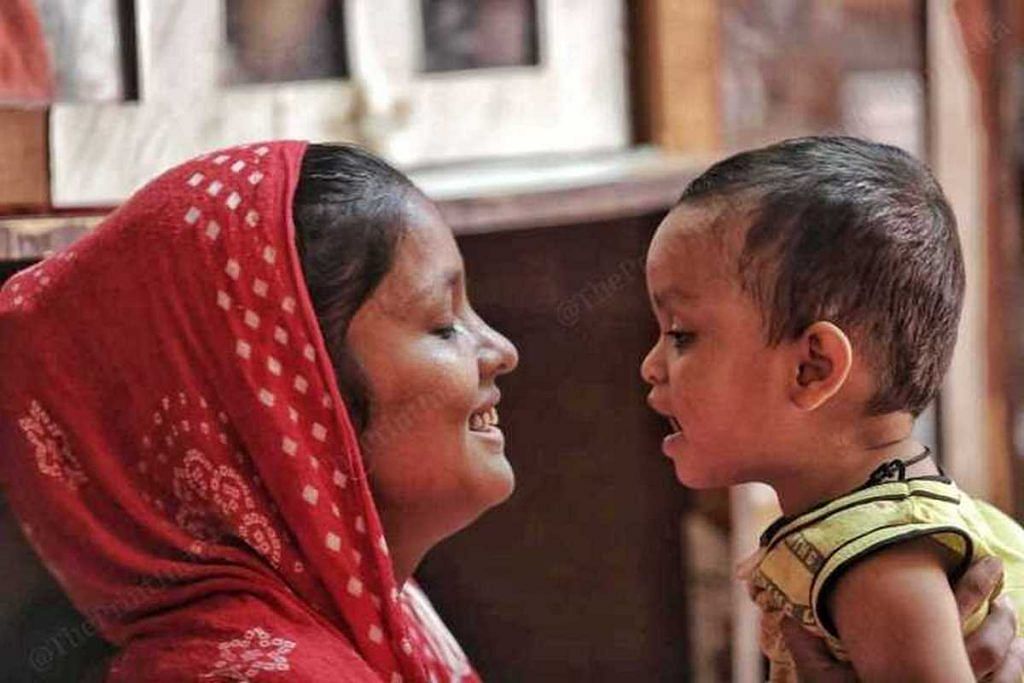
After Purvi’s birth, her husband and in-laws mistreated her to the point where she left their house and returned to her maternal home in Gujarat’s Aravalli district.
“He would hit me whenever I questioned him about his affairs. He even married someone else while being married to me. I couldn’t understand why he would hurt me so much when I was a child. But the realisation struck me when I became pregnant with Purvi,” Sonal said.
Things only got worse after her daughter was born.
“I had to leave the house because I was afraid they would kill Purvi. They would say, ‘She has given birth to a girl, throw her and her child out’. They kept my son and don’t let me talk to him,” Sonal said, tears rolling down her eyes. Purvi rubs her mother’s face, almost as if to wipe her tears.
The breaking point for Sonal came one night when she was fixing Purvi’s cradle. A part of it broke and a drunken Rohit threw a phone at her. The wooden log she held from the cradle struck her chest hard. Amid the commotion, Sonal’s mother-in-law tried to lift the baby from the cradle. It was then that Sonal made the decision to escape her torment and return home.
Rohit has never bothered to visit her, let alone provide her with medical treatment.
Helpless and uneducated, Sonal now takes on odd jobs such as dishwashing and house cleaning.
“I won’t allow this to happen to my daughter. My parents got rid of me. I left my house because of my daughter. I would have still tolerated the beatings if they hadn’t touched her,” Sonal said, her eyes gleaming with anger. Her parents look on, with little to say.
The room is filled with silence, interrupted only by Purvi’s laughter as she plays with her mother’s bindi.
Pucca bathrooms, confined dreams
A few kilometres from Sheetal’s house, five young women in rural Ahmedabad sit on a charpai under the shade of the trees in the courtyard.
As soon as one of the male members of the family speeds inside the premises on a motorcycle, they pull their ghunghats over their heads. One of the women rushes inside to get water for him.
Payal, Kailash, Komal, Maya, and Rajan were also married off as child brides to five Thakur brothers.
Maya, hardly 11 when she was married, is now seven months pregnant. All of them are uneducated and from extremely poor families.
“We didn’t have good houses and this rishta was extremely good. Our husbands have built us pucca bathrooms,” Kailash said.
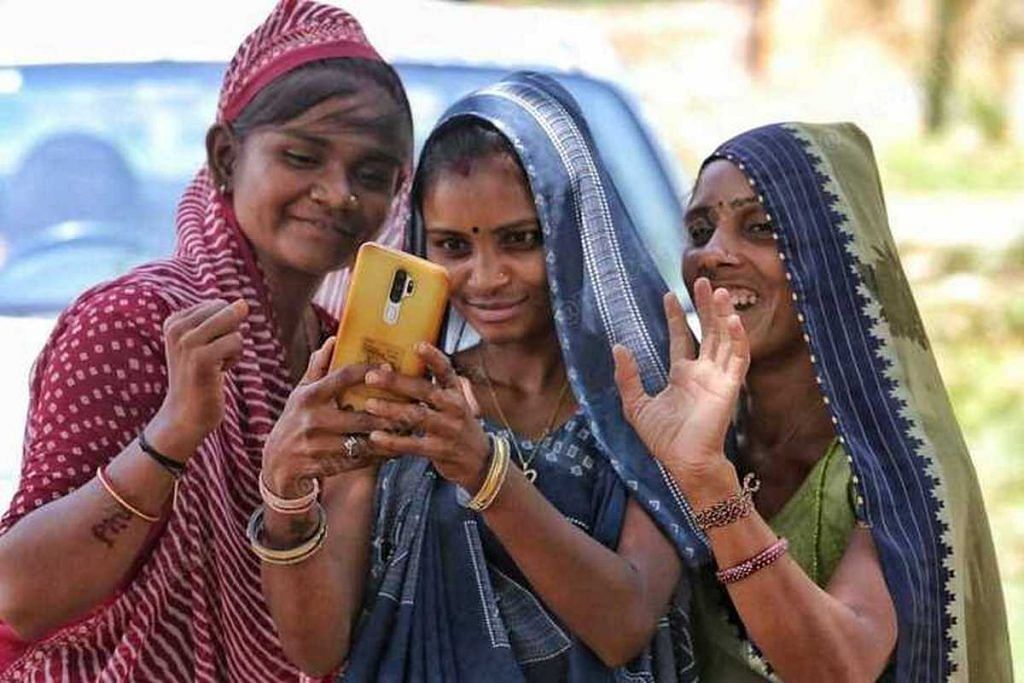
These women aren’t educated, but over time, they have learnt how to use Android phones. They want to video-call their families and friends back home, but only one of them has a phone, which is recharged by the men of the family.
“Here only the men have phones. We have kept one because Maya is pregnant,” Komal said.
Sheetal’s mother is also present at the gathering. When she expresses her worries about news of Sheetal’s rape getting out, Kailash is quick to offer advice.
“Get her married quietly. She will have a better life than here,” Kailash said. Seemingly reassured, Sheetal’s mother shows off some of the gold jewellery that was given to her daughter by her future in-laws at the engagement.
Consent remains a distant dream for these women and other child brides. Marriage, for them, is a means of improving their circumstances. It is an escape from their impoverished homes where meeting basic needs is a constant struggle. Some feel compelled to marry due to societal pressures. Their aspirations are fleeting wishes — the chance to study more, maybe trips to big cities.
‘Happy married life’
Two child brides, Heena and Meena*, try to fix their silver anklets at their home in Dungri village of Sabarkantha district. One of them removes her pair irritably, exposing the cuts they have left on her ankles. The two sisters were married off the same day to men in their mid-20s. Both men are unemployed.
The two girls, 14 and 16, belong to the Khant community. They’ve come home for the week, as is the custom here for new brides.
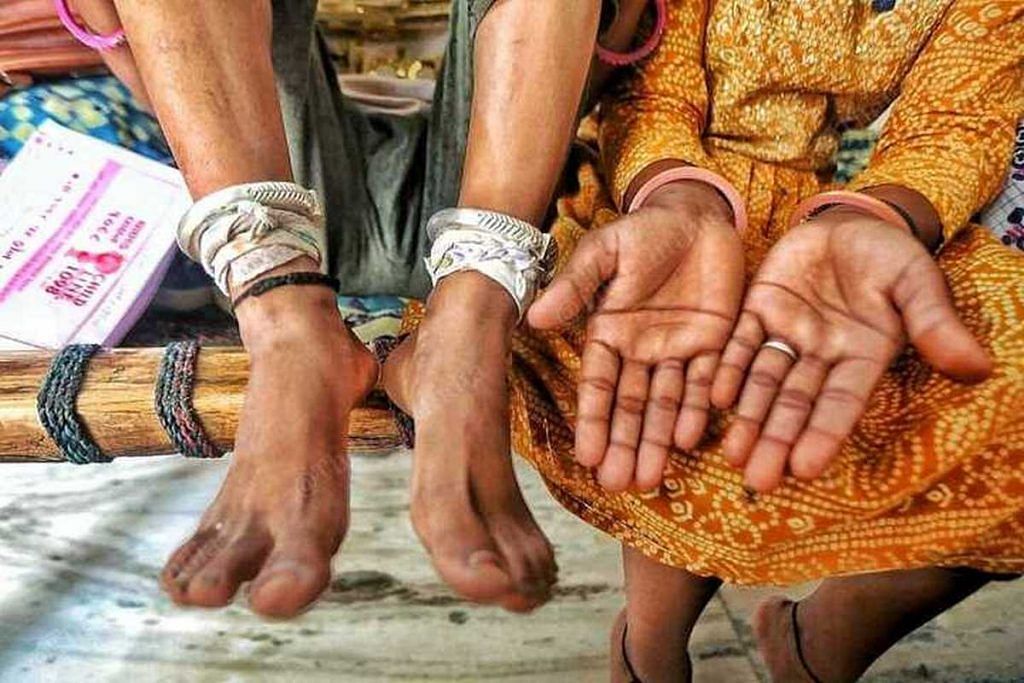
Two volunteers from a local NGO remind them about contraceptives. Their younger brother maintains a safe distance and continues studying.
“We were made to get married but we won’t let it happen to our younger sister,” one of the girls said, while her sister nodded her agreement.
Asked how many days are left to return to their husbands, both sisters started counting the days on their fingertips. “Two,” they said.
On the wall of the verandah of their house, in bold dark red are the words “Happy Married Life. Date — 15.05.23.”
* Names changed to protect the identities of minors.
(Edited by Asavari Singh)
Also Read: Assam’s crackdown on child marriages leaves behind young women & sobbing children


